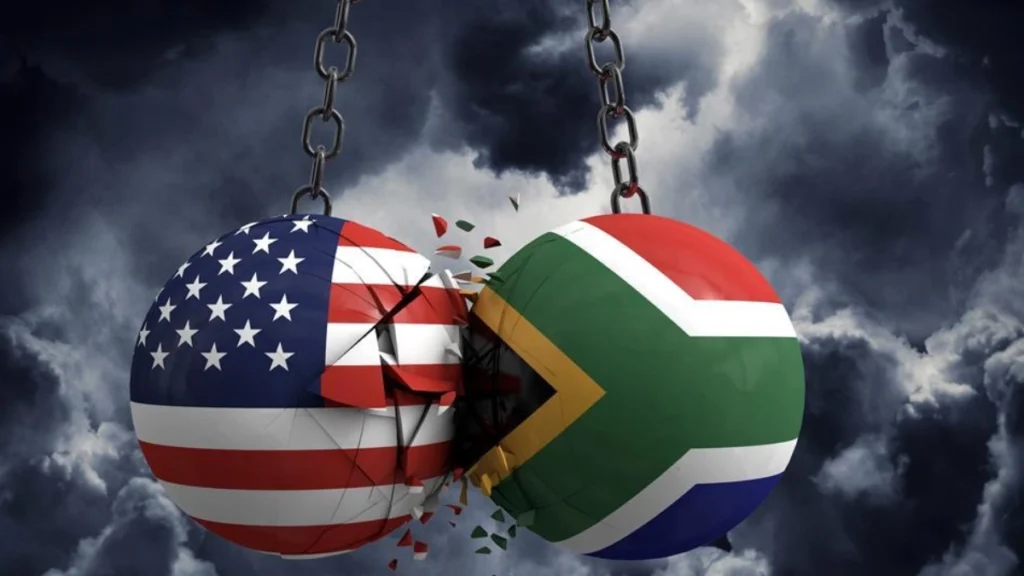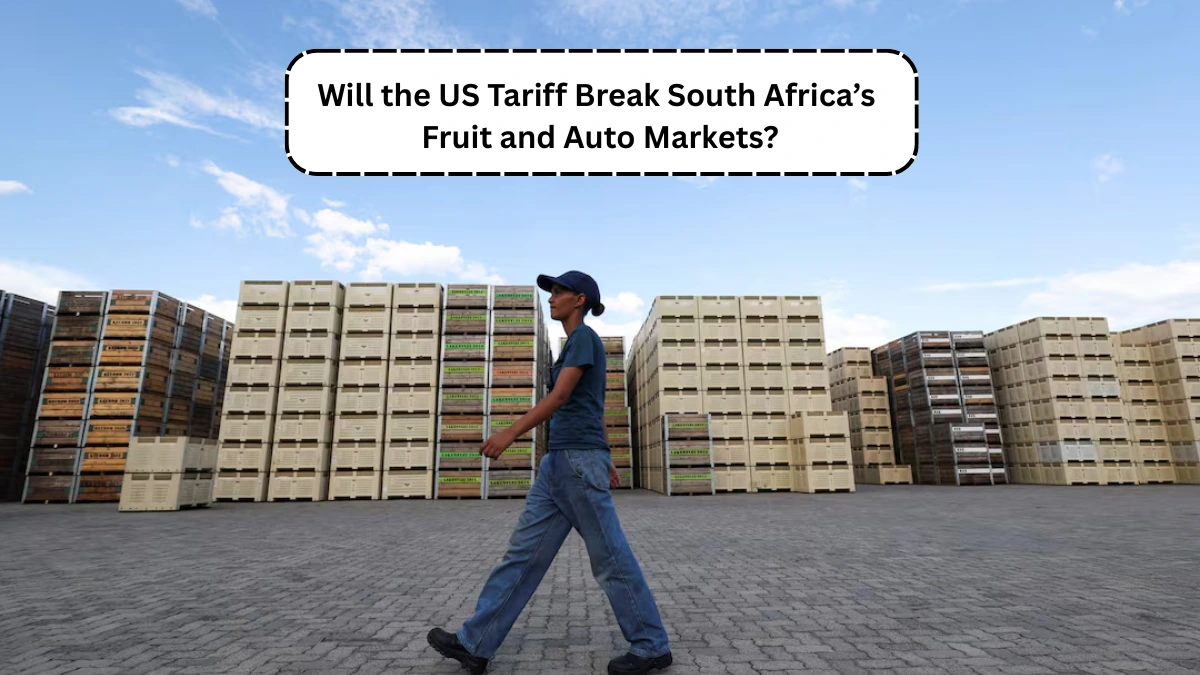A fresh US tariff could crush South Africa’s top farm export. Washington will charge 30 percent on local citrus from August 1 2025. Growers warn that thousands of rural jobs hang in the balance.
President Cyril Ramaphosa calls the tariff a disputed trade claim. His team races to secure a balanced deal with Washington. Pretoria asks exporters to reduce reliance on the American market.
Why the Tariff Hits Hard
Citrus is South Africa’s largest farm export by value. Only Spain sells more citrus on global markets. The US buys nearly ten percent of the local crop. Higher costs may force exporters to dump fruit elsewhere. That squeeze would slash grower income and slow rural spending.
35 000 jobs could vanish if the US market shuts. Most positions sit in small towns that rely on farm wages. Growers warn that a price collapse would deepen local poverty. Youth unemployment already stands near forty percent in some districts.
Citrus sales to the US earned roughly $200 million last season. That revenue supports farm wages, transport firms and port fees. A sudden halt could ripple through rail lines and cold stores.
Visit our Latest News section now for more updates

Government Moves to Seal a Deal
Pretoria says US goods already enter its market almost duty free. Officials say 77 percent of American products face zero tariff. They argue the new rate ignores that wider picture.
Trade envoys are meeting US negotiators in Washington this week. Both sides want a package before the tariff hits in August. Ramaphosa insists any compromise must protect farmers and auto workers.
Analysts doubt a full reversal but expect quotas or staged relief. Some warn the fight could spill into World Trade Organization talks. Pretoria is also courting Asian buyers to soften any US shock.
Car Industry Already Feels the Heat
April saw the first blow, a 25 percent car duty. Exports of South African assembled vehicles slid 12 percent in June. The NAAMSA industry group blames higher costs and buyer caution.
Mercedes Benz paused its East London plant for over a month. The company calls the halt a routine volume adjustment. Local suppliers fear longer shutdowns if US demand weakens further. Vehicle exports were once tariff free under AGOA, now under threat.
Steel and aluminium now face 25 percent rates after February reviews. Component makers warn higher inputs raise costs for every assembled vehicle. Local unions say wage deals may be reopened if orders fall.
| Sector | Old Duty | New Duty | Impact |
|---|---|---|---|
| Citrus fruit | 0% under AGOA | 30% | 35 000 jobs at risk |
| Cars and parts | 0% under AGOA | 25% | 12% export drop |
| Steel and aluminium | 10% baseline | 25% | Higher factory costs |
Outlook for Farmers and Consumers
Economists warn the tariff could raise fruit prices for US buyers. South Africa may reroute oranges to Europe and the Middle East. Long sailing times and lower prices would still hurt profit margins.
Grower groups push for relief grants and faster cold storage upgrades. Analysts say stability depends on quick progress in US talks. Without a deal, South Africa could test World Trade Organization rules.
For now farmers watch the calendar, hoping diplomacy beats the deadline. August one arrives in three weeks and the stakes keep rising.
Related News
- Drugs and Cellphones Seized in Kgosi Mampuru Prison Sweep
- KZN Police Commissioner Sparks Uproar: What Ramaphosa Will Do Next
- What South Africa Still Has Not Fixed After the July 2021 Riots
- Why South Africa’s unemployment rate may shock you today

Hi, I’m Amandeep Singh, a content writer at Ramnath Intercollage. I share updates on jobs, internships, and scholarships across South Africa using official and trusted sources. My aim is to make every post easy to read and helpful for anyone looking to apply.

